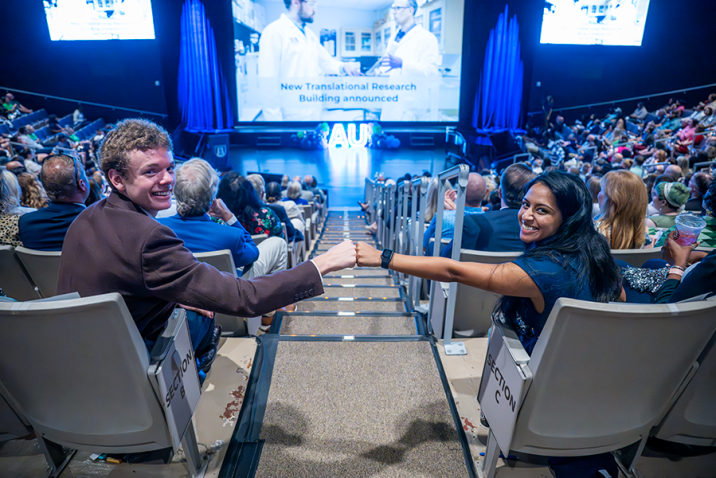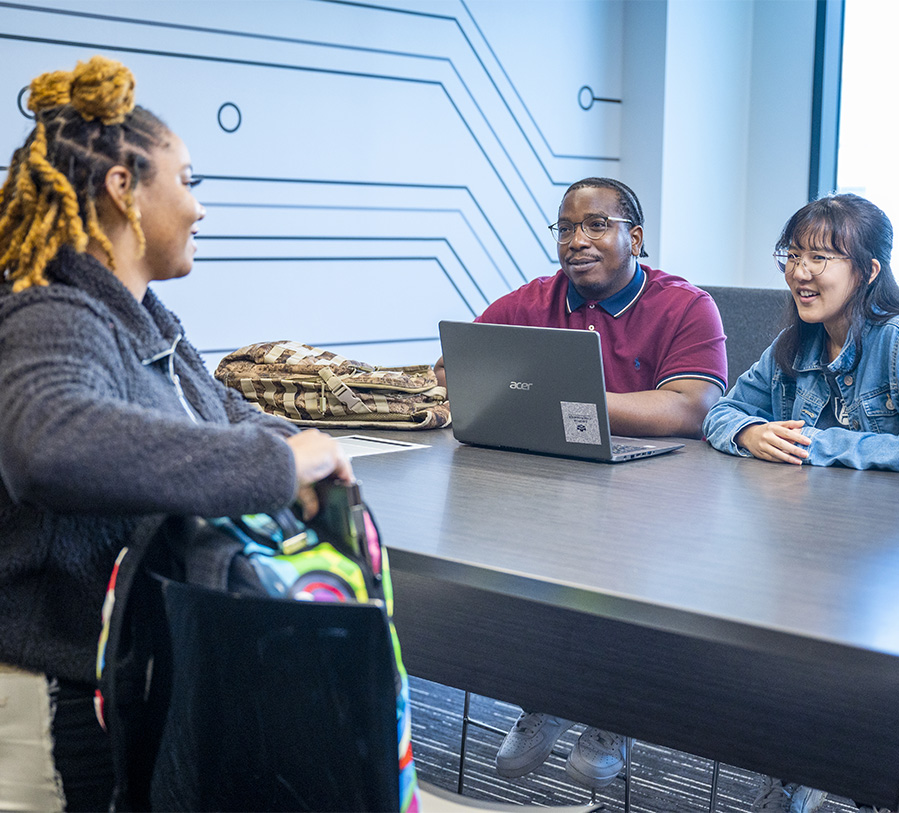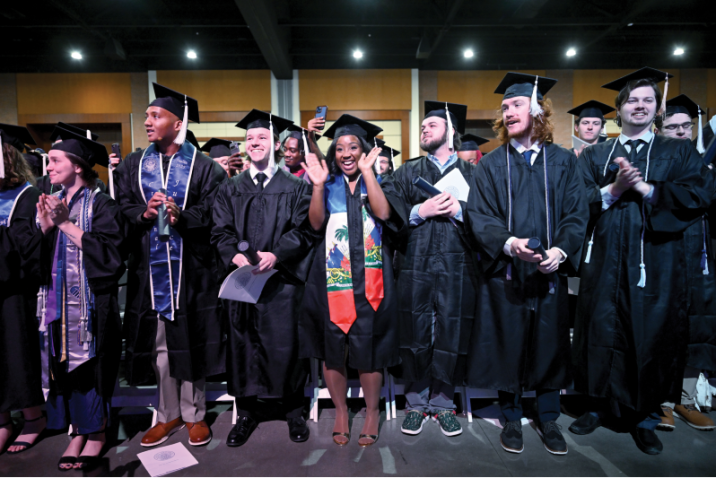Biomedical Systems Engineering
Are you interested in engineering and want to make a difference in the future of health care? Would you like to learn how to develop secure digital systems and technologies that benefit the people and processes in the vital health care field?
Then the Biomedical Systems Engineering program is for you. This program from the School of Computer and Cyber Sciences prepares students for various career pathways.
Augusta University offers a unique experince — one that helps you design the components and systems used to protect our health care organizations against risks and threats to cybersecurity.
Biomedical Systems Engineering is for you if you consider yourself
Life-Changing
Life-Saving
Education
Want to learn more about the Biomedical Systems Engineering program at Augusta University?
Request InfoWhat You'll Study
Coursework
In the Biomedical Systems Engineering program, you’ll learn to understand, manage and integrate biomedicine systems and gain the ability to develop digital health care-oriented systems and technologies guaranteed for security and integrity.
Experience-based Education
Outside the Classroom
The Senior Design Project matches seniors with industry sponsors to solve real-world technical problems. Teams of 3-5 seniors are mentored by a School of Computer and Cyber Sciences professor and work in collaboration with an engineer or manager from the agency.
The Augusta University chapter of the Upsilon Pi Epsilon international honor society for computing and information disciplines hosts fun and meaningful events throughout the year.
The Computer Science Colloquium Series offers you an hour credit to learn more about research topics in the computer and cyber sciences, providing a unique opportunity to expand your understanding of a variety of topics.
Study Abroad trips take your understanding of culture — and yourself — to new levels, delivering stimulating experiences that prepare you for rewarding career opportunities and a fulfilling life
Research & Innovation
Whether you’re an undergraduate or graduate student, you’ll have opportunities to create your own research projects or work with faculty to tackle some of the world’s most complex and pressing challenges.
Military Friendly
Our commitment to offering quality, affordable education to service members and veterans is a driving force, and we offer several programs to assist them in achieving their academic goals.
Learning Community
The JAGByte Living Learning Community provides incoming School of Computer and Cyber Sciences freshmen the opportunity to live and study together as a cohort and participate in a variety of exclusive activities.
Clubs & Organizations
Student clubs and organizations help you “plug in” to campus life in a way that can lead to meaningful connections, new interests and resume-enhancing experiences.
Your Future
Career Options
Graduates of the Biomedical Systems Engineering program can expect to find employment in health care, education settings, private practice or other industries. According to the U.S. Bureau of Labor Statistics, the median pay for a Biomedical Systems Engineer is $97,410, with an increase of 10% over the next decade.
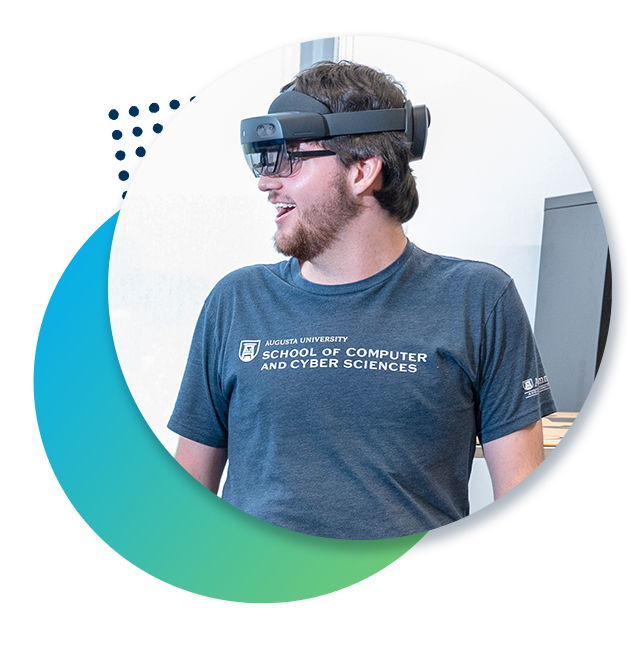
Why Augusta?
Proximity to industry experts at the 332,000 sq. ft. Georgia Cyber Center increases internship and networking opportunities by putting you shoulder-to-shoulder with professionals in the field.
As a designated Center of Academic Excellence in the area of cyber defense, Augusta University is home to the Center for Cybersecurity.
Student activities like the Cyber Defense Team and the Upsilon Pi Epsilon honor society give students opportunities to network with their peers as well as put their skills to the test in hacking competitions.
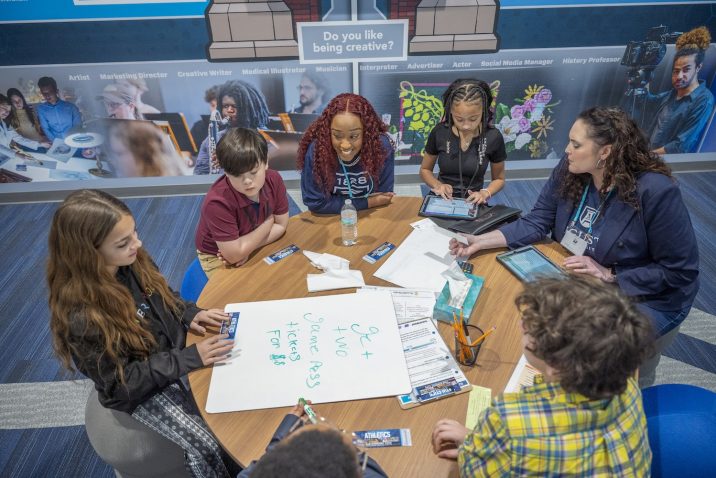
AU earns Carnegie Elective Classification for Community Engagement
AU earns Carnegie Elective Classification for Community Engagement